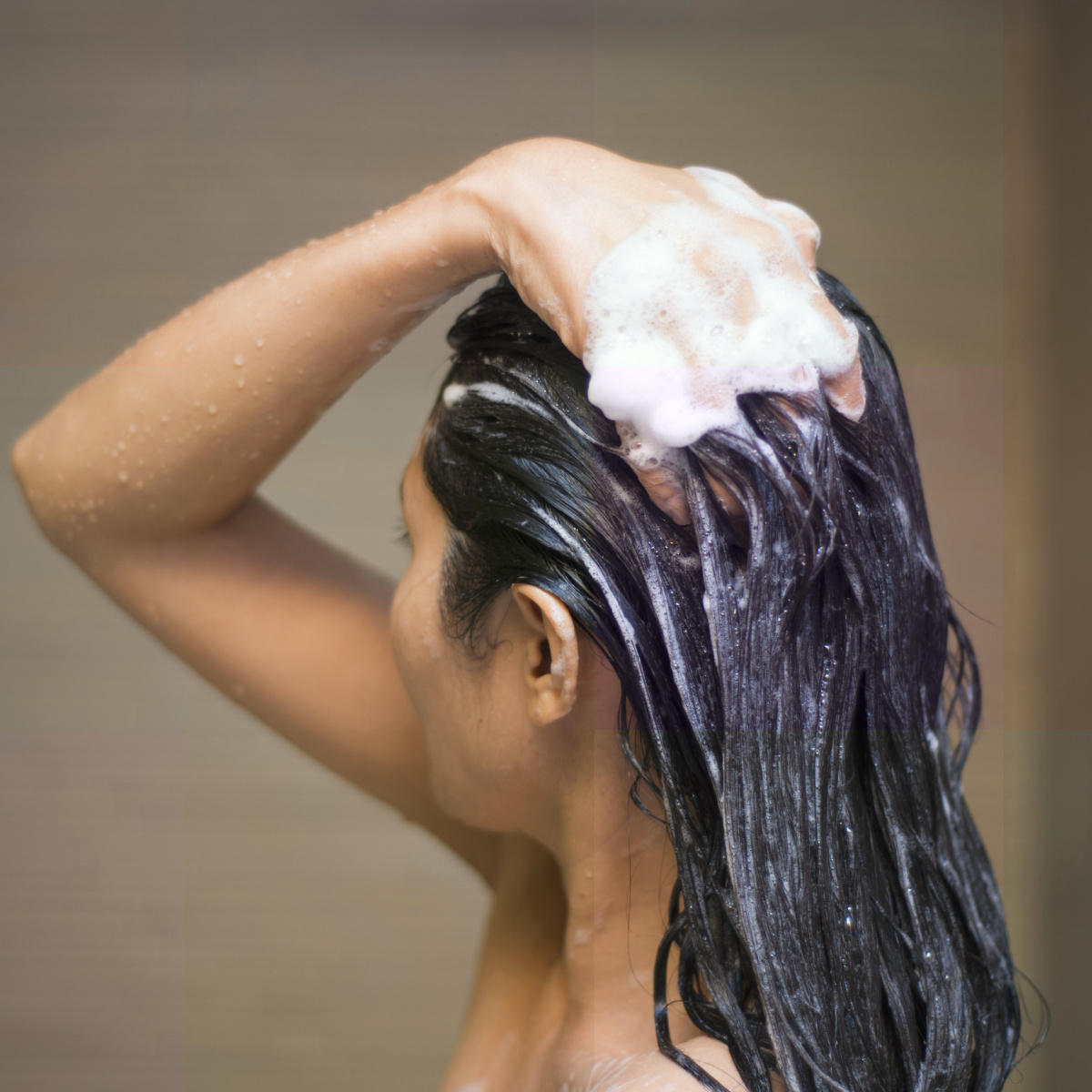
How Often Should You Wash Thinning Hair? Dermatologists & Hair Experts Weigh In
Whether you have thinning hair, are suffering from hair loss or just have naturally fine tresses, Abdullah explains that washing your hair every day can "lead to hair that's dry, weak and frizzy, besides having an excessively oily scalp."
"Washing daily can cause hair loss because it strips your scalp of sebum," Abdullah says. She emphasizes that "leaving some sebum on the scalp is protective and helps the hair follicles function properly." Without having it present, ever, due to daily washing, the hair follicles become "weak and can eventually drop the hair out from the root."
She stressed that hair loss is "from the root and something that can take a while, but daily washing can cause hair breakage much more rapidly, as the cuticles become open permanently."
Open hair cuticles means that the hair is "high porosity," and "doesn't allow moisture to stay inside the hair shaft," she goes on. Also, Abdullah says that open cuticles allow the shampoo to reach the inner core of the hair shaft and damage it.
She adds that this can strips your hair of its natural oils, leading to faster thinning. "Sebum can help to keep it healthy and hydrated. Washing your hair every day can strip the sebum away totally, leaving your hair dry, brittle, and prone to breakage," Abdullah warns.
As for how often to actually wash thinning hair, Abdullah suggests "twice a week at the most," and to always look closer at your shampoo ingredients (we'll get more into that later!)
She also points out that shampooing your scalp every day can surprisingly actually make it more oily, "even as it's drying out" your hair. "This is because your scalp produces more oil to compensate for the oil that is being stripped away," she continues. Unfortunately, Abdullah stresses that your hair "doesn't produce the same oil, so it becomes dry and frizzy from the mid-length to the tips."
Daily shampooing can damage your hair cuticles, as well. The cuticles are the outermost layer of your hair. "They protect the inner layers of your hair from damage," Abdullah says, and washing your hair "raises the hair cuticles because shampoo is alkaline."
With everyday cleansing, the hair cuticles can become permanently raised. "When this happens, it's easy for shampoo to enter the inner core of the hair and cause corrosion," she notes. "Open hair cuticles also means hair from which moisture escapes too easily, so the hair becomes very dry and weak."
Pro Tip: Take a Closer Look at your Shampoo Ingredient List
Kung says that inspecting what's in your shampoo and conditioner products is vital if you struggle with thinning and don't want to inadvertently increase hair loss. "Shampoos are typically composed of 10–30 ingredients, although products with as few as four ingredients are available," she adds. Kung recommends visiting your dermatologist for a personalized recommendation as many products target different scalp diseases and issues.
She also points out that hair loss and thinning can be caused by an allergic reaction to shampoo or conditioner, which is something many might not suspect. "Sometimes, people may be allergic to the ingredients in their shampoos and conditioners, or their products contain ingredients that may worsen underlying dermatologic conditions."
For example, Kung says she has seen patients who have "worsening dandruff, oily scalp, pimples in their scalp or on the face and neck because they used shampoos, conditioners, or hair styling products with blends of organic oils like coconut, olive, jojoba, argan, and moringa oils." (Something to keep in mind!)
Abdullah concludes that your shampoo should contain "botanicals that feed the hair follicles and shaft to help prevent hair loss." Essential oils like peppermint, rosemary and lavender can all help stimulate the hair follicles, she says, and hydrolyzed protein and collagen can help "fortify the hair shaft against damage and breakage."


